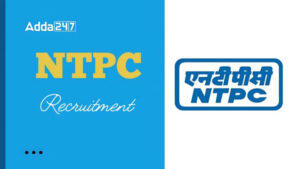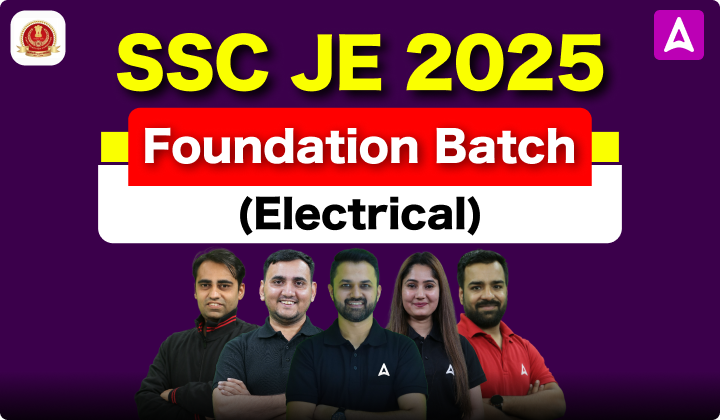Table of Contents
Civil Engineering Interview Questions With Sample Answers: With the developing interest in better frameworks and perfectly all-around planned urban areas, the requirement for Civil Engineers has additionally expanded. Considered not just as a part of the conventional courses yet the best Engineering courses for the future, Civil Engineering is a well-known decision after the 12th.
Civil Engineering Interview Questions With Answers
Aside from area explicit information, the questioner will likewise assess your expert abilities and situational imagination in view of the manner in which you act in the meeting. Subsequently, it turns out to be more than essential to rehearse for the individual meeting ahead of time. In this blog, we have organized a rundown of Civil Engineering Questions alongside some planning tips that will assist you with cruising through your Interview Process effortlessly.
Significance of Interview for Civil Engineers
Sitting in an interview for civil engineering is important for several reasons:
Assessment of Skills and Knowledge: The interview provides an opportunity for the interviewer to assess your skills, knowledge, and qualifications related to civil engineering. They can evaluate your technical expertise, problem-solving abilities, and understanding of engineering principles through specific questions and discussions.
Fit for the Role and Company: The interview allows both parties to assess the fit between the candidate and the role or company. The interviewer can evaluate if your experience and background align with the requirements of the position. Similarly, you can gauge if the company’s values, culture, and projects align with your professional aspirations.
Communication and Interpersonal Skills: In an interview, your communication skills and ability to articulate ideas clearly and concisely are evaluated. Effective communication is crucial in civil engineering, as it involves collaborating with team members, clients, contractors, and stakeholders. The interview helps gauge your ability to communicate complex technical information effectively.
Problem-Solving and Analytical Thinking: Civil engineering projects often involve solving complex problems and making critical decisions. The interview may include scenario-based questions to assess your problem-solving and analytical thinking skills. This helps the interviewer determine your ability to think critically, analyze situations, and propose feasible solutions.
Adaptability and Decision-Making: Civil engineering projects can be dynamic and require adaptability to changing circumstances. Interviewers may ask questions that assess your ability to handle challenges, make decisions under pressure, and adapt to new situations. This helps determine if you possess the necessary traits to succeed in a civil engineering role.
Professionalism and Ethics: The interview offers an opportunity to assess your professionalism, integrity, and ethical conduct. Employers seek individuals who uphold professional standards, adhere to codes of ethics, and demonstrate a commitment to safety and sustainability.
Personality and Teamwork: The interview also provides insight into your personality and how well you may fit within a team. Interviewers may evaluate your interpersonal skills, ability to work collaboratively, and willingness to contribute positively to the team dynamics.
Overall, sitting in an interview for civil engineering is important as it allows the employer to assess your technical skills, problem-solving abilities, communication skills, and fit for the role and organization. It also provides an opportunity for you to showcase your qualifications, demonstrate your passion for the field, and assess if the position aligns with your career goals and aspirations.

Important Civil Engineering Interview Questions and Answers
The candidates preparing for jobs in Civil Engineering discipline must have a better understanding of the basic concepts and be familiar with some common questions asked in the Interview. We have mentioned the list of some important commonly asked interview questions for Civil Engineers here to enhance their preparation:
Question: What is civil engineering, and what are its primary responsibilities?
Answer: Civil engineering is a branch of engineering that deals with the design, construction, and maintenance of infrastructure projects such as roads, bridges, buildings, and water systems. Its primary responsibilities include planning, designing, and overseeing the construction process to ensure the safety, functionality, and sustainability of the built environment.
Question: What are the different branches of civil engineering?
Answer: The different branches of civil engineering include structural engineering, transportation engineering, geotechnical engineering, environmental engineering, water resources engineering, and construction management.
Question: What is the role of a civil engineer in infrastructure development projects?
Answer: A civil engineer plays a crucial role in infrastructure development projects by performing tasks such as conducting feasibility studies, designing structures, preparing construction plans, managing construction activities, ensuring quality control, and addressing any technical challenges that arise during the project.
Question: Can you explain the process of designing a structure or infrastructure project?
Answer: The process of designing a structure involves several steps. It starts with gathering project requirements, conducting site investigations, analyzing loads and forces, selecting appropriate materials, creating preliminary designs, performing structural calculations, refining the design, and producing detailed construction drawings and specifications.
Question: What are the key factors to consider when selecting construction materials for a project?
Answer: When selecting construction materials, important factors to consider include the structural requirements of the project, durability, cost-effectiveness, availability, environmental impact, and compliance with building codes and regulations.
Question: How do you ensure the safety of a construction site?
Answer: Safety on a construction site is crucial. As a civil engineer, I would ensure safety by implementing and enforcing strict safety protocols, conducting regular safety inspections, providing appropriate personal protective equipment (PPE) to workers, organizing safety training programs, and promoting a culture of safety awareness among the project team.
Question: What is the difference between shallow and deep foundations, and when would you use each?
Answer: Shallow foundations are used when the soil near the surface has sufficient bearing capacity to support the structure. They typically include spread footings, mat foundations, or slab-on-grade. Deep foundations, such as piles or drilled shafts, are used when the soil near the surface is weak or inadequate to support the structure. The choice between shallow and deep foundations depends on factors like soil conditions, the load-bearing capacity required, and the presence of groundwater.
Question: Can you explain the concept of reinforced concrete design and its applications?
Answer: Reinforced concrete design involves the combination of concrete and steel reinforcement to create a composite material that can withstand tensile and compressive forces. It is widely used in various applications such as building foundations, columns, beams, slabs, retaining walls, and bridges due to its strength, durability, and versatility.

Question: How do you estimate the cost of a construction project?
Answer: Estimating the cost of a construction project involves analyzing the project scope, quantities of materials required, labor costs, equipment costs, and overhead expenses. This is typically done by preparing a detailed takeoff of quantities, obtaining material and labor prices, and factoring in any project-specific costs. Computer-aided estimating software can also be used to streamline the process.
Question: Can you describe the steps involved in conducting a geotechnical investigation for a project?
Answer: Conducting a geotechnical investigation involves the following steps:
a) Desk Study: Gathering existing data and information about the site’s geology, soil conditions, and previous investigations.
b) Site Exploration: Conducting field investigations, including soil sampling, test pits, boreholes, and geophysical surveys.
c) Laboratory Testing: Performing tests on soil samples to determine their properties, such as grain size, density, shear strength, and permeability.
d) Analysis and Interpretation: Analyzing the collected data and interpreting the soil properties to assess their suitability for the proposed project.
e) Reporting: Presenting the findings and recommendations in a geotechnical report, which guides the design and construction processes.
Question: What is the purpose of a traffic impact study, and what factors are considered in it?
Answer: A traffic impact study assesses the potential effects of a proposed development on the surrounding transportation network. Its purpose is to determine the impact on traffic flow, capacity, safety, and accessibility. Factors considered in a traffic impact study include existing traffic conditions, projected traffic volumes, peak-hour traffic patterns, road geometry, pedestrian and cyclist facilities, intersections, parking requirements, and the potential need for traffic control measures or infrastructure improvements.
Question: How do you manage the environmental impact of a construction project?
Answer: Managing the environmental impact of a construction project involves several measures:
a) Environmental Impact Assessment: Assessing the potential environmental effects before the project begins.
b) Compliance with Regulations: Ensuring compliance with local, regional, and national environmental regulations and permits.
c) Sustainable Design: Incorporating sustainable practices, such as energy-efficient design, use of eco-friendly materials, and water management strategies.
d) Waste Management: Implementing proper waste disposal and recycling procedures.
e) Erosion and Sediment Control: Implementing measures to prevent soil erosion and sedimentation into nearby water bodies.
f) Environmental Monitoring: Conducting regular monitoring to assess the project’s impact and take corrective actions if necessary.
Question: Can you explain the concept of surveying and its importance in civil engineering?
Answer: Surveying is the process of measuring and mapping the Earth’s surface and its features. It involves using specialized equipment to determine distances, angles, elevations, and positions of points on the ground. Surveying is crucial in civil engineering as it provides accurate data for designing and constructing infrastructure projects. It helps in land and site analysis, determining property boundaries, creating topographic maps, setting out construction layouts, and monitoring the deformation or movement of structures.
Question: What are some challenges you may face during the construction of a large-scale project, and how would you overcome them?
Answer: Some challenges during the construction of large-scale projects may include:
a) Project Coordination: Managing multiple contractors, subcontractors, and stakeholders to ensure smooth collaboration and coordination.
b) Budget and Schedule Management: Ensuring that the project stays within budget and meets the agreed-upon deadlines.
c) Quality Control: Ensuring that construction activities and materials meet the required standards and specifications.
d) Risk Management: Identifying potential risks and implementing mitigation strategies to minimize their impact.
e) Regulatory Compliance: Ensuring compliance with building codes, environmental regulations, and safety standards. Overcoming these challenges requires effective project management, proactive communication, meticulous planning, regular monitoring, and prompt problem-solving.

| Important Recruitments | |
| DRDO Recruitment 2023 | ISRO Recruitment 2023 |
| BHEL Recruitment 2023 | BEL Recruitment 2023 |
| NTPC Recruitment 2023 | PGCIL Recruitment 2023 |
| IOCL Recruitment 2023 | ONGC Recruitment 2023 |
Now keep yourself updated with Latest Engineering Government Jobs 24×7 Download ADDA247 App Now! CLICK HERE




 NTPC Assistant Executive Admit Card 2025...
NTPC Assistant Executive Admit Card 2025...
 NTPC Assistant Executive Exam Date 2025 ...
NTPC Assistant Executive Exam Date 2025 ...
 NWDA Recruitment 2025 Notification Out F...
NWDA Recruitment 2025 Notification Out F...



















